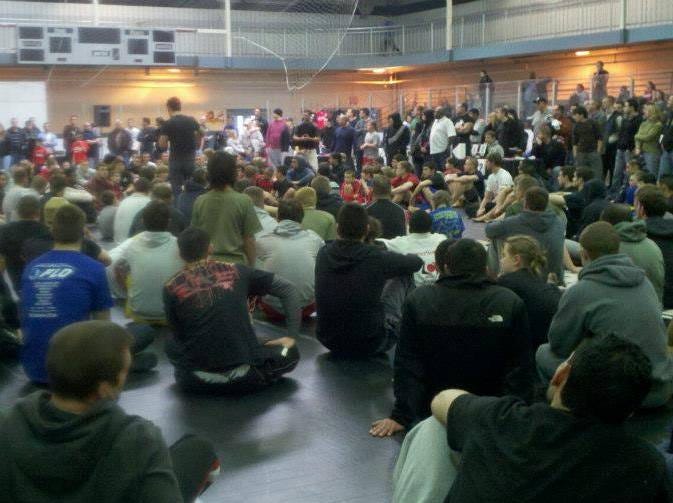Why me?
What a question! Why should something happen to me in particular, especially since I can look around out there and see other people in situations like mine, only better.
Jason has the same job as you, and he’s been with the company the same amount of time, but he doesn’t have to clean toilets. You do! Freddy seems to get away with murder, but you have to follow the rules. Mike literally wears a dead skin mask on his face and carries a super long knife around.
So: why you?
This is a question nearly everyone asks themselves at some point in their lives, and some people ask it several times a day. It showcases the human superpower of comparative analysis, something we can do vastly better than every other species. We look at what someone else is doing, then we ask ourselves if there is something we can change about our current situation so that we can have that better experience.
This ability has enabled us to copy the work of other humans in ways no other species has been able to do. We can learn things, pass these things along to the next generation, and then we humans just know the things. Now, we even write things down so future generations can study what we’ve done, said, and thought.
Think about it: one person could now invent something, and then others could simply copy it. Within a few generations, many or most humans would be using the idea. Throughout the hundreds of thousands of years of human evolution, I can’t think of any one innovation that did more to make us who we are today than this.
Even though we’re better than all other species at doing this, we’re still kind of terrible at it, at least in one sense. The problem isn’t that we wonder what we could do in order to improve our situation: it’s that we often end up resenting the person who has it easier.
Of course, this is a double-edged sword, and envy is hardly unique to humans. However, the part that seems unique to us is that we go beyond merely wanting the thing, and we move on to loathing the person who has it.
Now, there are lots of reasons why someone might have life easier than you have it. Life itself is incredibly complicated, and we can only see so much of another person’s life. We don’t know what experiences they’ve had, nor can we see everything that’s going on at the present moment. I’m honestly not even sure I can keep track of all of these things in my own life, never mind trying to do this with someone else’s life.
The point is that we see the tip of the iceberg that is the human being, and we often see only the tiniest faction of what the person is really living through.
Often, we’ll have incomplete information, but we have to make a decision anyway. Our senses aren’t perfect, and we don’t get a full picture of anyone’s story. Our minds badly want to finish any incomplete sketches of reality, and this too can be a superpower, as I explained a bit here:
Finishing an incomplete sketch is utterly compelling, but we often take this way too far in two particular situations. The first situation arises whenever we are trying to explain someone else’s actions, especially when someone has come across to us as rude. A cutting retort turns into an insult for no apparent good reason.
We imagine that someone’s slight against us is because they’re obviously a complete asshole with no common decency. Our minds concoct this fantasy in order to explain what we don’t see. In other words, our sample is not ample, but we make up a story anyway.
The second type of situation where we put the cart before the horse, so to speak, is when we feel envy that the other person has done well while we have languished. Clearly, this can sometimes get in the way of doing anything about it.
There’s a simple way to give some actionable advice here, and you’ve almost certainly heard it thousands of times in your life. The concept is simple, and it’s called the benefit of the doubt.
Now, please don’t get me wrong here. Irrational evil intentions are out there in the world! People do all sorts of things that seem crazy to us, and sometimes that’s because the thing really is crazy, in the sense that it derives from thoughts that aren’t tethered to reality.
Perhaps benefit of the doubt doesn’t entirely encapsulate the idea, then. Perhaps instead it’s the benefit of the potential for other explanations for someone’s behavior. Here’s where our superpower of imagination can get us out of a jam: try using this ability to conjure up potential benign explanations.
Children who are victims of violence often grow up to inflict violence on others. Similarly, any given human can answer in an unintentionally disrespectful way out of impatience or haste, not necessarily out of malice.
It’s not that the person certainly didn’t do something annoying on purpose, mind you—it’s that there are potential other explanations, too. As these alternative explanations pile up, you might start to consider how much weight to assign to probabilities, and you might even find that you’re not so sure the person was a monster after all.
You have to be the arbiter here, and I can’t help you decide when to give someone the benefit of the doubt. Doing too much of it is called being gullible, and nobody wants to be thought of as a sucker, so we tend to knee-jerk in the other direction in order to compensate.
In doing so, we go so far as to make up stories about people, and then we run our own lives accordingly. I don’t know about you, but I prefer to base my life on reality and not fantasy, although I sincerely enjoy a good fantasy or sci-fi TV show or horror film franchise.
Knowledge is power, and knowing what our own mental limitations are is incredibly important. If you’re interested in learning more about the most common types of cognitive bias, come have a little fun in this coffee shop with me:
Cognitive Bias at the Coffee Shop
You walk into a crowded coffee shop for the first time, taking refuge from a cold and rainy day outside. Your eyes aren’t quite open yet. You’re not exactly what they call a morning person.
Looking back on your life, is there an instance where you would give someone the benefit of the doubt if presented with the same information today?








But someone having an exculpatory explanation for shitty behavior doesn't excuse the behavior. You can waste a lot of time trying to figure people out.
From the film "Zulu" (1964):
"Why does it have to be us?"
"Because we're here, lad, and there's nobody else. Just us."
It's that simple...😂
https://youtu.be/HUq8gXhI0y8?feature=shared